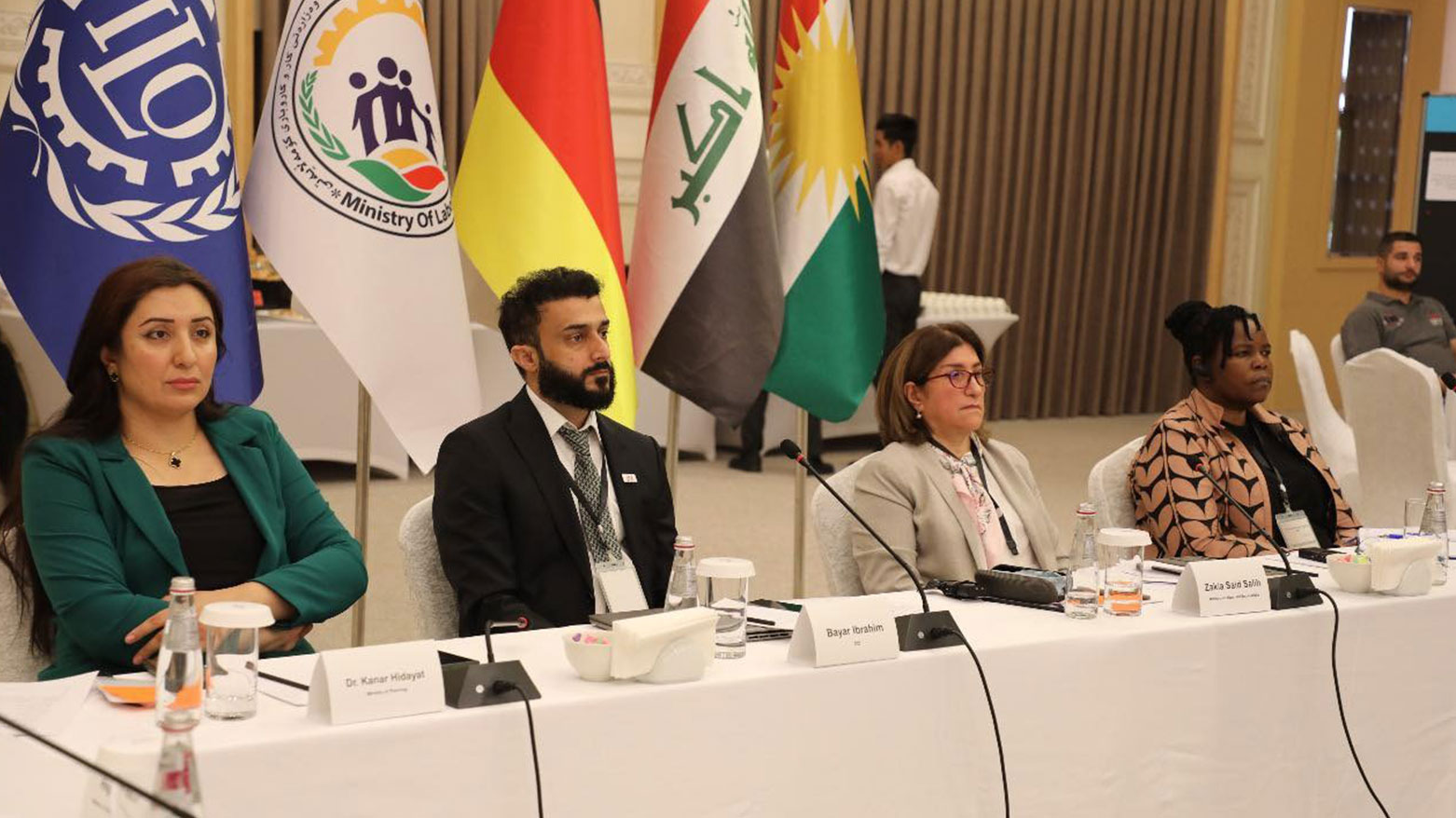KRG Ministry of Labour and Social Affairs Discusses 'Inclusive Employment Policy'
The session, organized by a project of Deutsche Gesellschaft für Internationale Zusammenarbeit (GIZ) GmbH – Germany’s main agency for international cooperation – focused on discussing "potentials for an inclusive KRG employment policy."

ERBIL (Kurdistan24) – The Kurdistan Regional Government (KRG) Ministry of Labour and Social Affairs announced on Tuesday that it is developing a new "inclusive" national employment policy. This policy aims to promote the participation of women, persons with disabilities, refugees, and internally displaced persons (IDPs) in the labor markets across the Kurdistan Region, according to a press release.
Deputy Minister of Labour and Social Affairs Zakia Said Salih chaired the second session of the Inclusive Employment Platform (IEP). The session, organized by a project of Deutsche Gesellschaft für Internationale Zusammenarbeit (GIZ) GmbH – Germany’s main agency for international cooperation – focused on discussing "potentials for an inclusive KRG employment policy." This information was shared in a statement issued by the ministry on its official Facebook page on Tuesday.
Participants "engaged in a comprehensive discussion on the importance of and ways to draft the upcoming KRG Employment Policy in an inclusive way for women, persons with disabilities, refugees, internally displaced persons, and host communities," the statement read.
"Inclusive employment is not only a moral obligation – it also strengthens economic development and social cohesion by unlocking the full potential of all society," the deputy minister stated. She described Tuesday's session as an "initial consultation on inclusion" in the policy, as the drafting process is yet to begin.
Representatives from various KRG ministries, including Trade and Industry, the Ministry of Interior – Directorate General of Joint Crisis Coordination Centre – and the Ministry of Higher Education and Scientific Research, also took part in the discussion.
This session was part of the platform that the ministry launched last December in collaboration with GIZ. The platform seeks to promote "inclusive policies" for integrating members of these groups into the private sector, an official from the ministry told Kurdistan24 last year.
Read More: KRG Ministry of Labour and Social Affairs launches Inclusive Employment Platform
Following the onset of the fight against ISIS and the outbreak of the Syrian civil war in 2014 and prior to that, millions of displaced Syrians and Iraqis sought shelter in the Kurdistan Region. They viewed the Kurdistan Region as a safe haven amidst the brutal events unfolding in the region during that period.
The region, already grappling with a financial crisis brought on by budgetary disputes with Baghdad and the ongoing fight with ISIS, has hosted over a million IDPs and refugees, with most living among host communities. As of March 2024, the region hosted 900,467 displaced individuals, according to the KRG Media and Information Department, with many residing in host communities.
